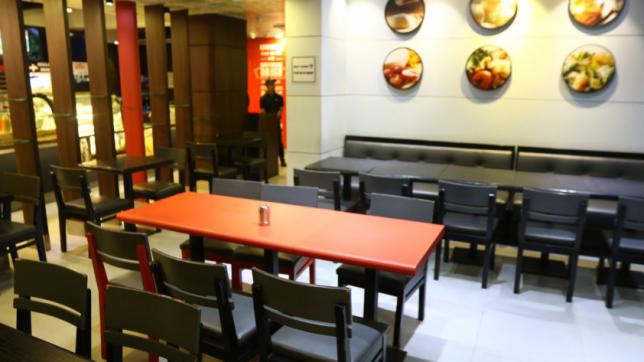Published in The Daily Star on Monday, 1 August 2016
MACRO MIRROR
Cost of terrorism on the economy – Dr Fahmida Khatun
 Life can change at any moment. On July 1, 2016, life changed for us Bangladeshis. Security has become an even higher priority for the country. This has brought changes to our individual and national lives in many ways. The prospect of any imminent terrorist activities following attacks in Gulshan and Sholakia has prompted the government to beef up security measures across Dhaka city by several folds. Vulnerable and important places have tight security, and members of law enforcing agencies are stationed on main roads, checking vehicles, passengers and passersby. I myself face at least six such security checks on a given day during my commute. The windows of my car are rolled down, my laptop bag is opened and sometimes, I have to disclose my destination. This exercise is reassuring for me, as it gives me a sense of confidence about my safety, even though it creates temporary traffic congestion. So after every checking, I thank the person for performing his/her duty diligently. Sometimes they just look at you and let go. I guess they use their judgement on determining who could be a prospective terror and who would not. While such judgement could be dangerous I also feel itis a tiring and monotonous job. Not all check points have places to sit or get shelter when it rains. Such security measures are a new phenomenon, and it will take a while to improve checkpoints with a proper setup for more effective inspection.
Life can change at any moment. On July 1, 2016, life changed for us Bangladeshis. Security has become an even higher priority for the country. This has brought changes to our individual and national lives in many ways. The prospect of any imminent terrorist activities following attacks in Gulshan and Sholakia has prompted the government to beef up security measures across Dhaka city by several folds. Vulnerable and important places have tight security, and members of law enforcing agencies are stationed on main roads, checking vehicles, passengers and passersby. I myself face at least six such security checks on a given day during my commute. The windows of my car are rolled down, my laptop bag is opened and sometimes, I have to disclose my destination. This exercise is reassuring for me, as it gives me a sense of confidence about my safety, even though it creates temporary traffic congestion. So after every checking, I thank the person for performing his/her duty diligently. Sometimes they just look at you and let go. I guess they use their judgement on determining who could be a prospective terror and who would not. While such judgement could be dangerous I also feel itis a tiring and monotonous job. Not all check points have places to sit or get shelter when it rains. Such security measures are a new phenomenon, and it will take a while to improve checkpoints with a proper setup for more effective inspection.

As part of maintaining high security, movements of rickshaws, buses and other public transports have been restricted in and around Gulshan and Baridhara. Certain roads have been blocked for them. Thus, while ensuring security, this has also created problems for the residents of the area, as most people have to rely on public transports. Rickshaws, auto-rickshaws and buses are the only way for low income and lower middle income people to commute from one place to another place. Now people have to walk longer to avail public transport. Moreover, public transport fares have gone up conveniently at this opportune moment. The suffering becomes acute when an emergency patient has to be taken to hospital at night, but no transport is in sight in the area.
The closure of unauthorised commercial establishments including restaurants, clinics, schools, shops and offices in the residential area is a positive move. They have overcrowded the use of public utilities which were designed only for a certain number of people. They have also risked the safety of the area. But these organisations also created employment for hundreds of poor people who migrated from villages to the city for a better livelihood. Shutting off these establishments and the exodus of expatriate families from Bangladesh due to the terror threat will render these poor workers unemployed. As employment generation is already a challenge in the country, it is truly worrisome to consider how these newly unemployed people will be accommodated in the job market. Obviously, private security companies cannot accommodate all of them! This could hamper our efforts towards poverty eradication and may give rise to crime and violence.
In view of security threats, additional measures have also been taken at offices, factories, schools, shopping malls, mosques and other establishments. These additional expenditures will be borne by consumers of services at various levels. For example, schools that have bought bulletproof buses for children, or hired a larger number of security personnel at the school gates and installed metal detectors and security cameras in schools, are mostly likely to hike their fees. This burden will ultimately fall on the parents of the students. Offices and factories will have to allocate a higher budget for the appointment of private security guards, which implies a cut in their profitability. Shops will also pass on their extra costs for security on buyers, making things costlier for them.
In addition to impacts at individual and household levels, the macroeconomic effects of terrorism could be reflected through a number of avenues. Higher public investment on security means diversion of resources that could be invested otherwise, e.g. for infrastructure, productivity improvement, education, health and social protection. Foreign investors may want to shift their investment to safer places. Foreign companies and organisations will have to pay higher salaries with added risk allowances. This would increase cost of their operations and could lead to downsizing of their operations. Some offices have already done so. There is also the risk of higher capital flight and lower capital inflow. With the new dimension of terrorism, insurance companies may hike their premium, making business costlier.
Strong and larger economies can withstand terrorist attacks without the evidence of much effect on their economies. They have a more diverse and developed economy with a larger basket of export goods and larger size of gross domestic products. However, economies such as Bangladesh, which has a smaller GDP and is tied to only a very few export items such as readymade garments, manpower, frozen food and leather, is vulnerable, as its foreign exchange earnings and employment depend on them. In the end, these will have an impact on the economic growth of the country.
Therefore, effective measures need to be taken in order to restore the confidence of people both within and outside the country. Not only are appropriate fiscal and monetary policies needed to address the emerging situation, institutions will have to be well-developed and effective. Reforms and capacity building of all types of institutions – economic, political and judiciary – are long due. Government initiatives to reduce the risk of terrorism would be far more successful if people across the board are included.
The writer is Research Director at the Centre for Policy Dialogue.

